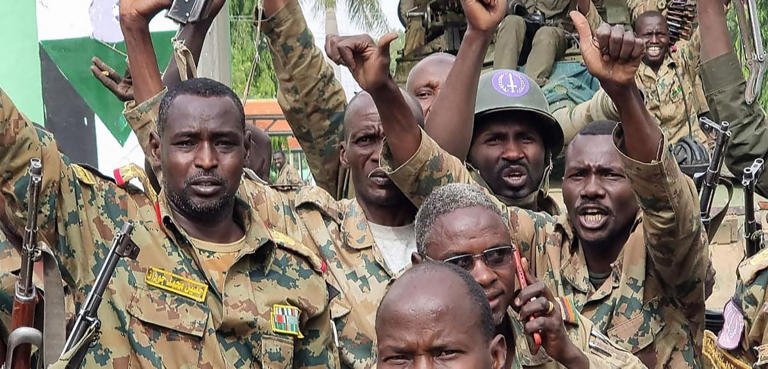Sudan (The Saharaa) – As Sudan approaches the grim one-year anniversary of its bloody civil war, The Carter Center issued a dire plea on Tuesday for a ceasefire. The organization urged the warring factions, civil society, and the international community to prioritize dialogue and negotiations as the pathway to peace.
In a statement, the nonprofit organization stressed the urgent need for intervention, warning that Sudan stands on the brink of catastrophe after enduring nearly a year of devastating violence. The ongoing conflict has not only plunged the majority of Sudan’s population into dire need of humanitarian assistance but also poses a significant risk of regional escalation, with millions of refugees and returnees heightening tensions across borders.
The civil war erupted on April 15, with clashes between the Sudanese Armed Forces and the breakaway Rapid Support Forces. Since December, the conflict has taken a turn, with the RSF seizing control of most of the five Darfur states and Al Jazirah, leading to the expansion of fighting into new regions within the country.
According to the United Nations, 5.4 million people within Sudan have already been displaced by the war, while another 1.4 million have fled to neighboring countries. Approximately 14 million people are now in urgent need of life-saving humanitarian support, according to estimates by the United Nations International Children’s Emergency Fund (UNICEF). The Armed Conflict Location & Event Data Project (ACLED) reports that as of early last month, the conflict has claimed the lives of 14,600 individuals.
Warnings from various branches and officials of the United Nations have been ongoing for months, indicating that the conflict was deepening into a full-fledged civil war. Last month, the International Criminal Court announced that there were grounds to believe war crimes were being committed amidst the conflict in Darfur.
The Carter Center, founded by former President Jimmy Carter, emphasized the need for immediate action from both the Sudanese government and the international community to halt the violence and prevent further humanitarian crises. The call for a ceasefire comes as a desperate attempt to avert further destabilization of the region.

